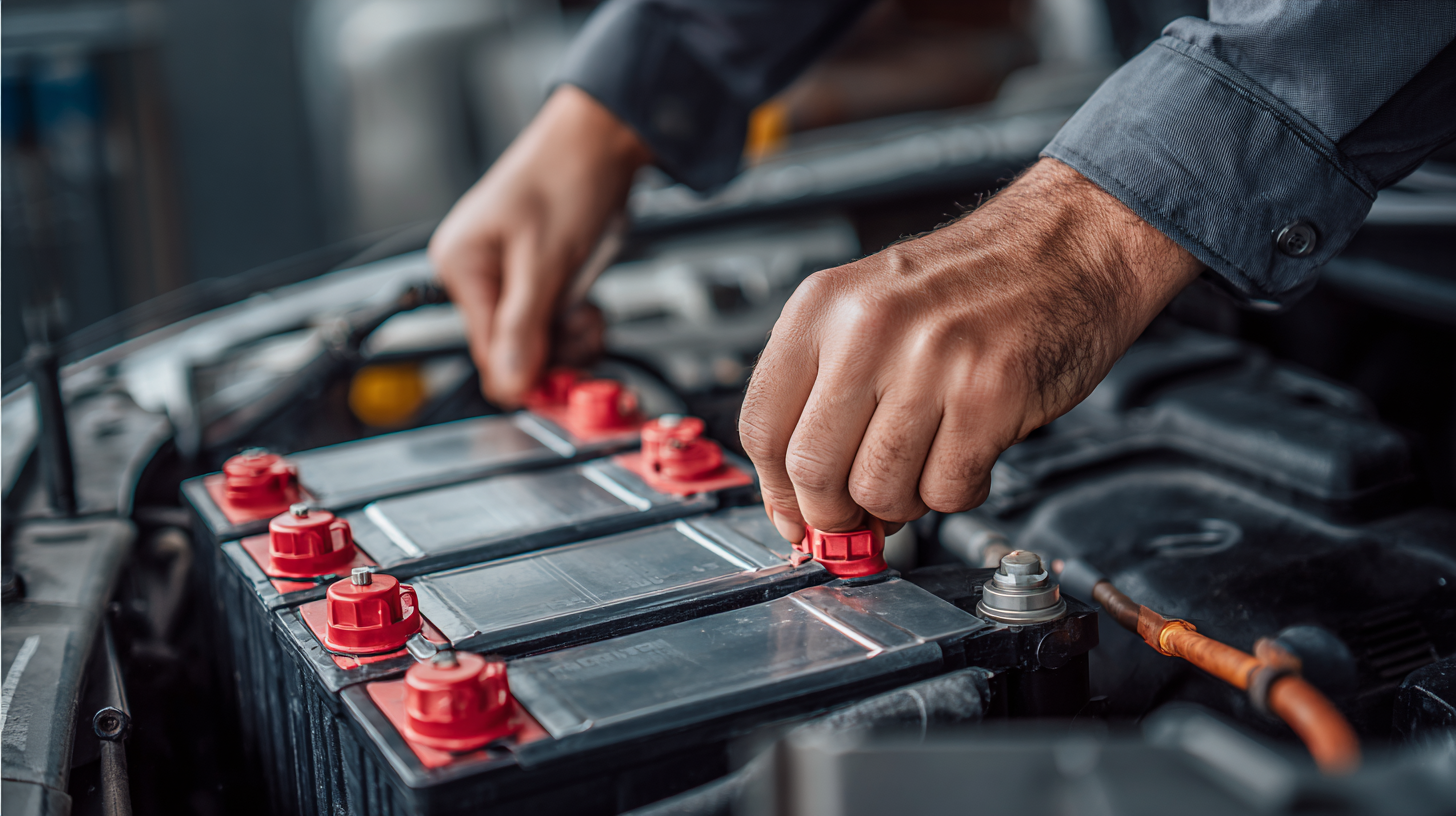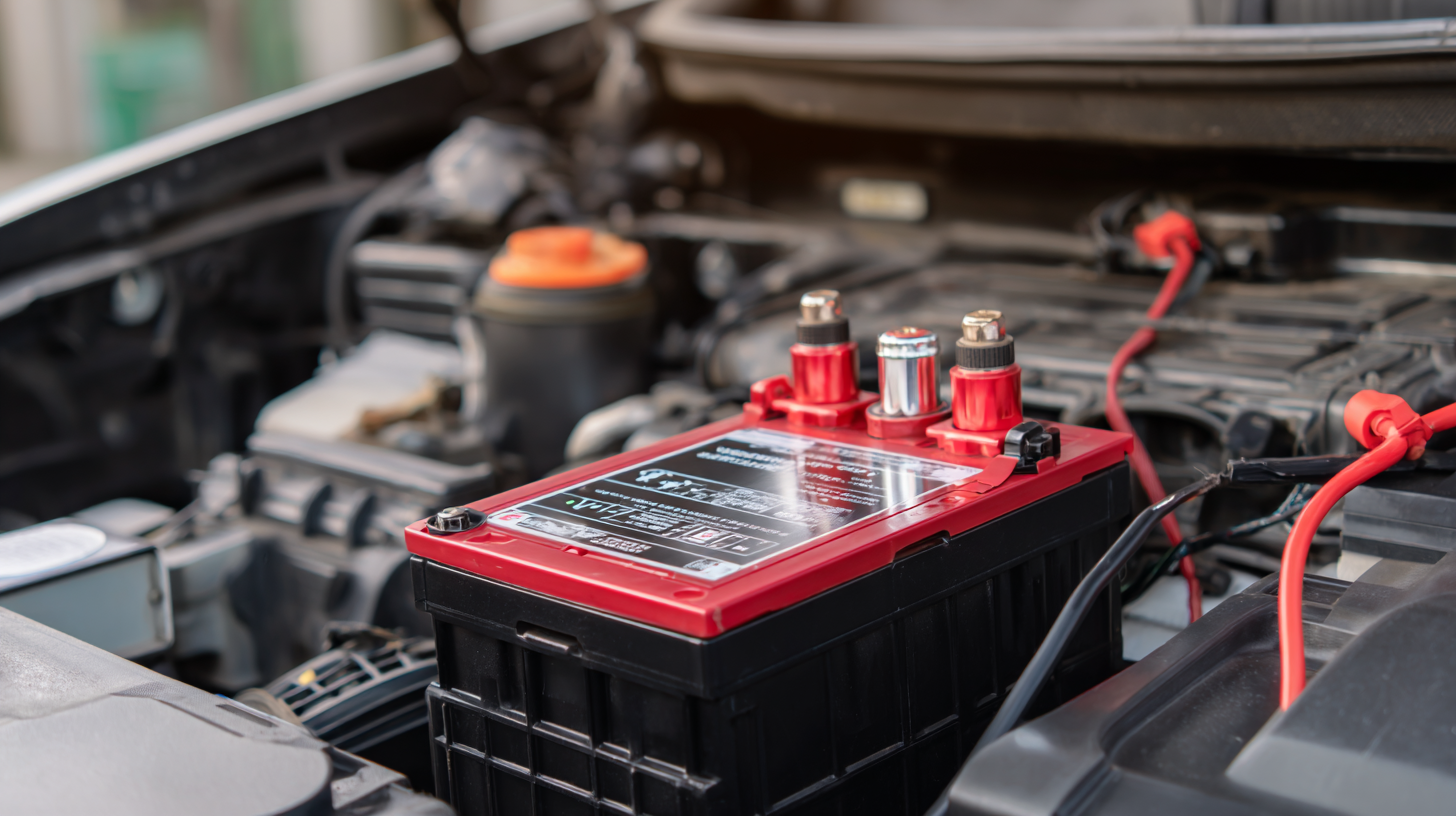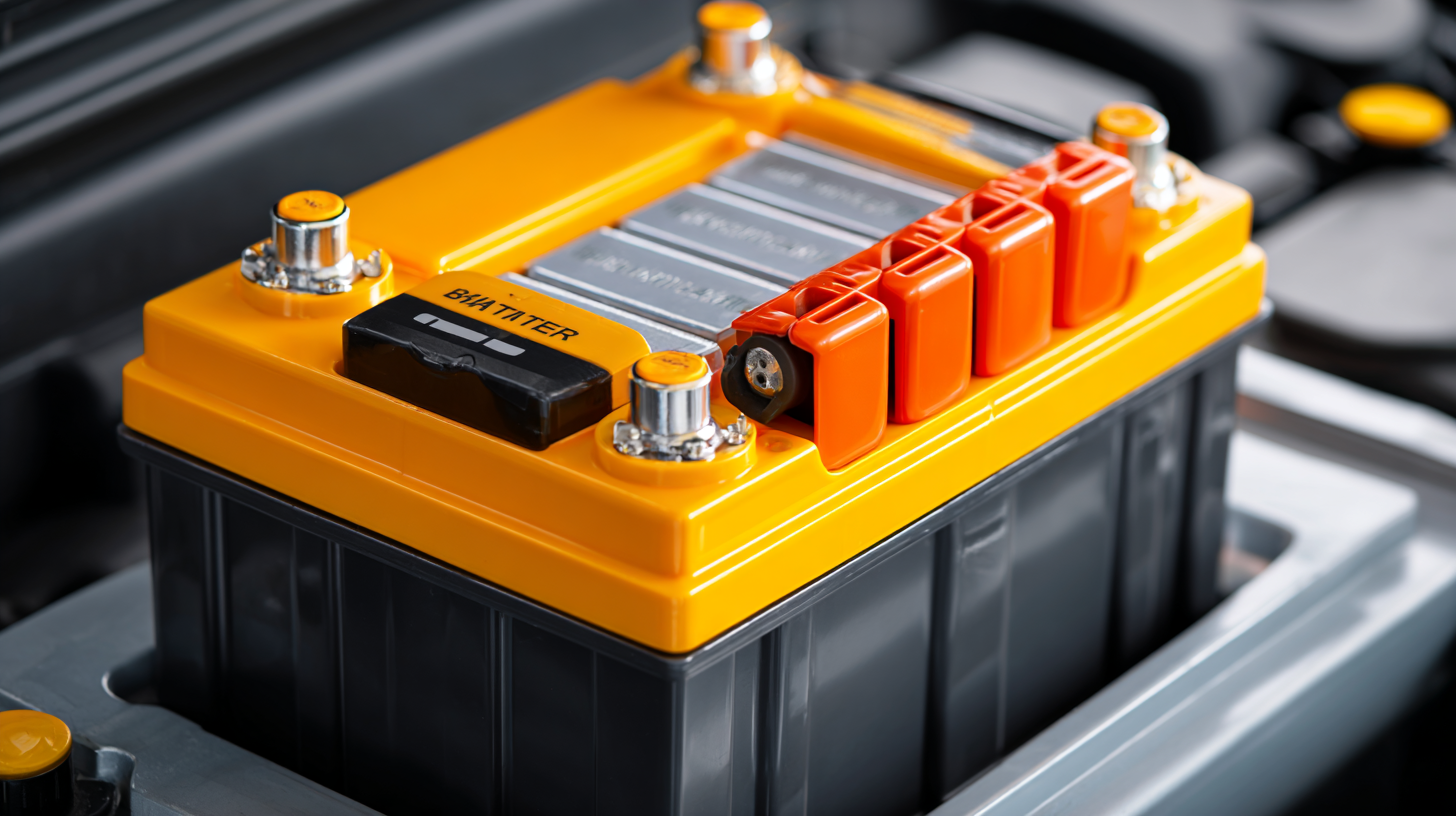10 Best Tips to Save on New Car Battery Costs
The rising cost of a new car battery is a significant concern for many vehicle owners, with recent industry reports indicating that prices have increased by nearly 25% over the past few years, driven by the demand for more advanced battery technology and inflationary pressures. According to data from the Battery Council International, the average price for a standard lead-acid battery now hovers around $150, while lithium-ion batteries can soar to $300 or more, depending on the make and model of the vehicle. Understanding the factors that contribute to new car battery costs is essential for consumers looking to manage their automotive expenses effectively. With proper knowledge and strategic planning, drivers can take advantage of cost-saving strategies that not only reduce the financial impact but also extend the lifespan of their batteries. In this blog, we will explore ten essential tips to help you save on new car battery costs, ensuring you hit the road with confidence without breaking the bank.

The Importance of Regular Battery Maintenance for Longevity
Regular battery maintenance is crucial for ensuring the longevity of your car battery. Ignoring battery upkeep can lead to premature failure and costly replacements. One of the simplest yet most effective maintenance tips is to keep the battery terminals clean and free of corrosion. This not only enhances the battery's performance but also ensures a reliable connection between the battery and the vehicle’s electrical system.
In addition to cleaning the terminals, checking the battery’s water levels in maintenance-free batteries can significantly affect its lifespan. If your battery has removable caps, periodically inspect and refill with distilled water as needed. Moreover, it's essential to test the battery's charge regularly, especially before long trips. Using a multimeter can help monitor voltage levels and indicate whether it might be time for a replacement. By prioritizing these maintenance tasks, you can extend your car battery's life and avoid unnecessary expenses.
10 Best Tips to Save on New Car Battery Costs - The Importance of Regular Battery Maintenance for Longevity
| Tip Number | Tip Description | Expected Savings (%) | Maintenance Frequency |
|---|---|---|---|
| 1 | Regularly clean battery terminals | 5% | Every 3 months |
| 2 | Check battery fluid levels | 10% | Monthly |
| 3 | Avoid short trips | 15% | Always |
| 4 | Test battery health regularly | 20% | Every 6 months |
| 5 | Keep battery charged | 10% | Weekly |
| 6 | Inspect for corrosion | 5% | Monthly |
| 7 | Ensure secure battery connections | 10% | Monthly |
| 8 | Turn off lights and electronics | 15% | Always |
| 9 | Replace battery every 3-5 years | 25% | Every 3 years |
| 10 | Consult a professional for issues | N/A | As needed |
Understanding Different Types of Car Batteries and Their Costs
When considering a new car battery, understanding the different types available and their associated costs is essential for making an informed decision. The two most common types of car batteries are lead-acid and lithium-ion. Lead-acid batteries, often used in traditional internal combustion engine vehicles, typically range from $100 to $200, while lithium-ion batteries, used in electric vehicles (EVs), can cost anywhere from $2,000 to $7,000 according to a report by the U.S. Department of Energy.
To save on battery costs, consider purchasing a maintenance-free lead-acid battery. These batteries usually require less upkeep and can last anywhere from three to five years, making them a cost-effective choice. Additionally, look for local retailers that offer price matching or bulk discounts, which can further reduce your expenses.
Another smart tip is to regularly check your battery's health. Many car batteries come equipped with a built-in tester, which can help you identify any issues before they require expensive repairs or replacements. By staying proactive, you can extend your battery's lifespan and avoid premature costs, ultimately saving you money in the long run.
How Seasonal Changes Affect Car Battery Performance and Expenses
 Seasonal changes have a significant impact on car battery performance and associated costs. During extreme temperatures, both hot and cold, a car battery’s efficiency can decline. Cold weather hinders the chemical reactions within the battery, leading to reduced power output and difficulty starting the vehicle. As temperatures drop, vehicles may struggle to turn over in the mornings, prompting drivers to consider expensive replacements even when their batteries are not entirely dead.
Seasonal changes have a significant impact on car battery performance and associated costs. During extreme temperatures, both hot and cold, a car battery’s efficiency can decline. Cold weather hinders the chemical reactions within the battery, leading to reduced power output and difficulty starting the vehicle. As temperatures drop, vehicles may struggle to turn over in the mornings, prompting drivers to consider expensive replacements even when their batteries are not entirely dead.
Conversely, high temperatures can cause a battery to overheat, accelerating the evaporation of electrolyte fluid and increasing the risk of internal damage. This often leads to a shorter lifespan for the battery, necessitating replacement sooner than expected. To mitigate these seasonal impacts, it's wise to regularly maintain and test your battery, ensuring connections are clean and tight. Additionally, investing in a quality battery with a good warranty can help shield you from unexpected costs as the seasons change.
By being proactive with maintenance and understanding how the weather affects your battery, you can avoid costly surprises and extend the life of this essential component.
DIY Strategies to Extend the Life of Your Car Battery
One of the most practical ways to extend the life of your car battery is by ensuring that it's clean and free of corrosion. Regularly inspecting the terminals and connectors can help maintain a good connection and prevent any unnecessary drain. Use a mixture of baking soda and water to clean any corrosion you may find, but ensure the battery is turned off before you begin.
Another effective DIY strategy is to minimize short trips, which can be hard on your battery. Each time you start your car, the battery uses a significant amount of energy. If you typically take short trips around town, consider consolidating errands to reduce the number of starts and stops. This way, your battery has more time to charge while you drive longer distances.
Lastly, always check your battery’s water level if you have a maintenance-free type. Although many modern batteries are sealed, older types may require periodic water addition. Keeping the fluid levels topped up can help prevent sulfation and extend your battery's lifespan significantly. Regular maintenance checks are vital to understanding your battery's health and ensuring that it performs optimally for years to come.

Comparative Analysis of Warranty Options and Their Financial Benefits
When considering the financial implications of car battery replacement, it's essential to examine the various
warranty options available. A comparative analysis of these options can help consumers understand how
different warranties can affect their out-of-pocket expenses. For instance, a comprehensive warranty that covers battery failure could save drivers
hundreds of dollars, as replacing a car battery can often cost between
$100 to $300 depending on the vehicle model. Extended warranties can be particularly beneficial for newer
batteries, especially if they're used in electric vehicles, where battery costs are a significant portion of the vehicle's total expense.
Moreover, understanding the factors that influence consumer behavior towards purchasing warranties is crucial. Research indicates that consumers are often swayed by
the perceived value and the financial security that a solid warranty offers. In fact, data shows that extended car warranties can enhance the
economic viability of owning a car, with many consumers reporting a preference for covered repairs over unexpected costs.
This highlights the importance of carefully analyzing warranty plans and ensuring they're aligned with individual vehicle usage and battery
types, which can ultimately yield financial benefits in the long run.
